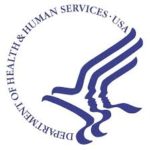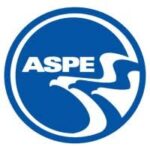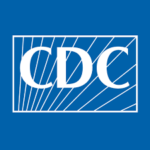The following is the latest health policy news from the federal government for September 20-26. Some of the language used below is taken directly from government documents.
 Congress
Congress
Yesterday, Congress passed a continuing resolution to fund the federal government when the new federal fiscal year begins on October 1. The continuing resolution will extend funding for federal agencies at current levels through December 20 of this year. The bill did not include other significant policy provisions. President Biden will sign the bill this week and avoid a shutdown of the federal government. Find the bill text here.
Following passage of the continuing resolution, both the House and Senate have adjourned for six weeks. When Congress returns to Washington following the election it will seek to pass spending bills for FY 2025 and attempt to address other legislative priorities – possibly including relief from Medicare physician pay cuts and scheduled Medicaid disproportionate share (Medicaid DSH) cuts, extension of the Medicare Dependent Hospital program and the Medicare low-volume adjustment for which some hospitals qualify, telehealth extensions; and other matters.
 Centers for Medicare & Medicaid Services
Centers for Medicare & Medicaid Services
- CMS has told states they have until December 31, 2026 to review the eligibility of everyone on their Medicaid rolls and complete the Medicaid unwinding process. In a memo to state Medicaid programs, CMS wrote that “… all states are required to complete a compliance assessment… and submit a plan outlining steps and milestones for addressing identified areas of non-compliance to CMS by December 31, 2024. Compliance plans will detail how states will achieve compliance with all applicable requirements no later than December 31, 2026.” The CMS memo also outlines a timeline for states’ remaining unwinding efforts, reminds them of the tools they can use to redetermine eligibility, and warns that “States that fail to demonstrate compliance with all renewal requirements by December 31, 2026, may face additional agency action based on CMS’ assessment of the state’s circumstances and the nature of the non-compliance.” Learn more from the CMS memo to state Medicaid programs and an accompanying CMS slide deck that presents an overview of Medicaid and CHIP eligibility renewals.
- CMS has released comprehensive guidance to support states in ensuring that the 38 million children with Medicaid and Children’s Health Insurance Program (CHIP) coverage – nearly half of the children in the country – receive the full range of health care services they need. Under Medicaid’s Early and Periodic Screening, Diagnostic, and Treatment (EPSDT) requirements, eligible children and youth are entitled to a comprehensive array of prevention, diagnostic, and treatment services, including well-child visits, mental health services, dental, vision, and hearing services. This new guidance reinforces EPSDT requirements and highlights strategies and best practices for states to implement those requirements. The EPSDT guidance also includes information to help address the needs of children with behavioral health conditions and includes a series of strategies and best practices that states can use to meet children’s and youth’s behavioral health needs. Learn more about the new guidance from this CMS news release and this CMS memo to state health officials that presents the new guidance.
- CMS has issued a final rule that seeks to advance policies that promote the efficient operation of the Medicaid Drug Rebate Program (MDRP). This includes policies to implement new statutory authorities included in the Medicaid Services Investment and Accountability Act of 2019 to address situations in which manufacturers incorrectly report or misclassify their drugs in the MDRP. The final rule also enhances MDRP integrity and strengthens policies that seek to ensure greater consistency and accuracy of drug information reporting, timely data collection, and efficient operation of the MDRP. The major components of the rule include provisions that facilitate identifying and correcting misclassified drug information and addressing late reporting by drug companies; enhancing Medicaid drug rebate program definitions and operations; imposing requirements on states that seek to improve pharmacy benefit operations in states’ Medicaid managed care programs; and implementing other provisions addressing legislative changes to the Medicaid drug rebate cap, court-ordered changes, and third-party liability. Learn more from this CMS fact sheet and from the final rule itself, which takes effect on November 19.
- Earlier this month CMS’s ICD-10 Coordination and Maintenance Committee met publicly to update stakeholders on recent policy developments. The recordings, slide presentations, and post-meeting Q&As from the procedure code portion of those meetings are now available here. October 11 is the deadline for receipt of public comments on proposed new codes, addenda, and revisions being considered for implementation on April 1, 2025. November 15 is the deadline for receipt of public comments on proposed new codes, addenda, and revisions being considered for implementation on October 1, 2025. Stakeholders may submit comments on procedure code topics to CMS at ICDProcedureCodeRequest@cms.hhs.gov and comments on diagnosis code topics to the CDC’s National Center for Health Statistics at nchsicd10cm@cdc.gov.
- CMS’s Hospital Quality Reporting System (HQR) is now accepting electronic clinical quality measure (eCQM) data for the CY 2024 reporting period. The HQR system now accepts Quality Reporting Document Architecture (QRDA) Category I test and production files using CY 2024 requirements. Test QRDA Category I data submissions are considered practice submissions and do not count toward CMS program credit. Production QRDA Category I data submissions by hospitals or by health information technology vendors on a hospital’s behalf count as final data submissions to fulfill the eCQM reporting requirements for the Hospital Inpatient Quality Reporting and Medicare Promoting Interoperability Programs. Learn more from this CMS notice.
- CMS has launched a program to provide almost $9 million in Affordable Care Act grants under a new Expanding Access to Women’s Health program to improve women’s health coverage and access to selected health benefits in 14 states and the District of Columbia. These funds may be used to develop activities and launch education campaigns to address disparities in access to reproductive health care and maternal health outcomes, including contraception and other family planning services. Learn more about the grant program and how some states plan to spend their money from this HHS news release.
- CMS has published an October quarterly update of its 2024 durable medical equipment, prosthetics, orthotics, and supplies (DMEPOS) fee schedule. Find that bulletin here. The changes it describes take effect on October 1.
- CMS held National Training Program (NTP) Medicare Open Enrollment Period Bootcamp sessions on September 25 and 26. The sessions offered updates to the Medicare Plan Finder; information about Medicare Part D program redesign pursuant to the Inflation Reduction Act; details on the rollout of the Medicare Prescription Payment Plan, which will help Medicare beneficiaries manage their out-of-pocket drug costs by spreading them over the calendar year; open enrollment timing, beneficiary resources, and outreach efforts; and Medicare Advantage. Recordings of the sessions and presentations can found under past events on the CMS National Training Program web page.
- CMS has issued a final rule to address what it characterizes as “significant, anomalous, and highly suspect (SAHS) billing activity” within accountable care organizations reconciliation that CMS identified in early 2023 involving an unexplained increase in urinary catheter billings among Shared Savings Program ACO participants that it traced to a small group of durable medical equipment supply companies. CMS determined that the beneficiaries did not receive catheters and were not billed directly, physicians did not order these supplies, and the supplies were not needed. The CY 2025 physician fee schedule proposed rule addresses SAHS billing activity beginning in CY 2024 and this rule finalizes changes in policies for assessing performance year 2023 financial performance of Shared Savings Program ACOs and revising their future benchmarks in light of CMS’s findings. In the rule, CMS explains that “We proposed this rule to mitigate the impact of SAHS billing activity for selected intermittent urinary catheter supplies on Shared Savings Program calculations;” this means it will hold participating ACOs harmless for the inappropriate billings. Learn more from this CMS fact sheet and this pre-publication version of the final rule, which is scheduled for official publication on September 27 and takes effect on October 15.
- CMS has released the first evaluation report of its Kidney Care Choices Model, which is a voluntary model designed to improve care management for people with Medicare who have stage four or five chronic kidney disease, end-stage renal disease (ESRD), and are post-transplant. Find that report here and a briefer summary of it here.
 Department of Health and Human Services
Department of Health and Human Services
- HHS and its Substance Abuse and Mental Health Services Administration (SAMHSA) have awarded more than $1.5 billion in grants for fiscal year 2024 State Opioid Response, Tribal Opioid Response, and State Opioid Response/State Tribal Opioid Response Technical Assistance grants. These grants will help support evidence-based, holistic practices that address the overdose crisis through prevention; promote harm reduction, including naloxone and other opioid overdose reversal medications; provide more treatment, including use of medications for opioid use disorder; and offer recovery supports. These grants increase the focus on services for transitional-aged youth and young adults (ages 16-25 years); expand availability of medications for opioid use disorder in correctional settings; and emphasize the role of services that use a whole-person approach by considering an individual’s physical and mental health needs and their social supports. Learn more about how the funding will be used and find links to lists of the grant recipients in this HHS news release.
- HHS and its Health Resources and Services Administration (HRSA) have awarded the first multi-vendor contracts to modernize the nation’s organ transplant system to improve the transparency, performance, governance, and efficiency of the organ donation and transplantation system. HRSA believes the new approach will improve patient safety, support modernization of the Organ Procurement and Transplantation Network (OPTN), support OPTN IT modernization, increase transparency and public engagement in OPTN policy development, strengthen patient-centered communications, and improve OPTN financial management. Previously, HRSA announced that the OPTN board of directors is now separately incorporated and independent from the board of the United Network for Organ Sharing (UNOS), the longtime OPTN contractor. Learn more from this HHS news release.
- HHS and HRSA have awarded $75 million in grants to support health care services in rural America. Funding will launch new opioid treatment and recovery services in rural communities, strengthen maternal health care in the south, and help rural hospitals stay open. The funding includes $54 million to launch and expand substance use disorder treatment, recovery, and social support services in rural communities; $9 million to expand access to maternal health services in the south; and $12 million to support the viability of rural hospitals. Learn more about the funding and its intended uses and find a link to a list of grant recipients from this HHS news release.
 CMS needs to provide additional oversight of remote monitoring of Medicare patients, HHS’s Office of the Inspector General concludes in a new report. According to the OIG, use of remote monitoring is increasing rapidly, so Medicare needs to know more about how remote patient monitoring is being used, including who is receiving it, for what conditions it is being used, how its use is reflected in Medicare claims, and how to identify vulnerabilities that may limit the oversight of these services. It also is concerned about potential fraud, waste, and abuse. Learn more from the OIG report “Additional Oversight of Remote Patient Monitoring in Medicare Is Needed.”
CMS needs to provide additional oversight of remote monitoring of Medicare patients, HHS’s Office of the Inspector General concludes in a new report. According to the OIG, use of remote monitoring is increasing rapidly, so Medicare needs to know more about how remote patient monitoring is being used, including who is receiving it, for what conditions it is being used, how its use is reflected in Medicare claims, and how to identify vulnerabilities that may limit the oversight of these services. It also is concerned about potential fraud, waste, and abuse. Learn more from the OIG report “Additional Oversight of Remote Patient Monitoring in Medicare Is Needed.”- State Medicaid programs need to do more to ensure HIV care for Medicaid enrollees, the OIG has concluded after a recent analysis of such efforts. The OIG found that states and the managed care plans that serve large numbers of their Medicaid participants reported that two systemic issues – unmet health-related social needs and provider shortages – affect enrollees’ abilities to maintain their care and limit states’ and plans’ ability to address resulting gaps in care. In addition, states and their managed care plans reported that two operational challenges – limited access to data and insufficient administrative staff – affect their efforts to monitor enrollees’ care needs and take action to connect enrollees to care. Learn more from the OIG report “Systemic and Operational Challenges Hinder Efforts to Ensure HIV Care for Medicaid Enrollees.”
- Medicare and Medicaid enrollees in many high-need areas may lack access to medications for opioid use disorder, the OIG has concluded in a new report. The report found that in 2022, hundreds of counties in high need of medications for opioid use disorder services lacked office-based buprenorphine providers and opioid treatment programs and that even in counties where such providers did practice, they often did not treat any Medicare or Medicaid enrollees. The OIG report offers several recommendations for addressing this problem. Find that report here.
- HHS’s Office of the Assistant Secretary for Technology Policy/Office of the National Coordinator for Health Information Technology (ASTP) has released the 2024 Draft Federal FHIR® Action Plan, a curated catalog of federal agency uses of the Health Level Seven (HL7®) Fast Healthcare Interoperability Resources® (FHIR®) standard and associated implementation specifications. Federal agencies are adopting and using FHIR to meet a range of agency needs, including facilitating care coordination and expanding individuals’ access to their health information. The draft action plan serves as a single resource for federal agencies and anyone else in the health IT community looking for the FHIR-based capabilities being used today by the federal government. Learn more about the plan from the ASTP blog entry “Introducing the 2024 Draft Federal FHIR® Action Plan,” which describes the plan and includes a link to the complete draft.
- In a new issue brief, ASTP describes its use of data from a 2023 national survey of health information organizations (HIOs) to provide insights into interoperable laboratory data participation in HIOs and how impediments in access to data by laboratories may limit the completeness of laboratory data made available to HIOs. Learn more about what ASTP learned from its issue brief “Laboratory Interoperability Through Health Information Exchange Organizations.”
 A new study released by HHS’s Office of the Assistant Secretary for Planning and Evaluation (ASPE) presents findings from a descriptive analysis of a linked mother-child Medicaid claims dataset to examine the characteristics of pregnant women who use medication for opioid use disorder or intensive behavioral health treatment; additional analysis describes the mental health and neurodevelopment outcomes of their children at one year and three years. Learn more about what the study found in the report “Characteristics of Pregnant and Postpartum Women With Opioid-Exposed Births and Their Children According to Type of Behavioral Health Treatment.”
A new study released by HHS’s Office of the Assistant Secretary for Planning and Evaluation (ASPE) presents findings from a descriptive analysis of a linked mother-child Medicaid claims dataset to examine the characteristics of pregnant women who use medication for opioid use disorder or intensive behavioral health treatment; additional analysis describes the mental health and neurodevelopment outcomes of their children at one year and three years. Learn more about what the study found in the report “Characteristics of Pregnant and Postpartum Women With Opioid-Exposed Births and Their Children According to Type of Behavioral Health Treatment.”- ASPE has released a report summarizing lessons learned from using communities of practice (which ASPE defines as “groups of people who share a concern or a passion for something they do and learn how to do it better as they interact regularly”) to support state, tribal, local, and territorial public health agencies during the COVID-19 pandemic. The report draws on findings from an environmental scan and in-depth interviews to understand the types of communities of practice that supported state, tribal, local, and territorial public health agencies during the COVID-19 pandemic; the characteristics of communities of practice that were most helpful to those public health agencies; and how communities of practice assisted public health agencies with translating federal guidance into practice. Find the report here.
- ASPE and HHS’s Office of the Assistant Secretary for Health have conducted a comprehensive study to identify promising practices aimed at reducing disparities in COVID-19 vaccination and testing and policy options to promote equitable, routine vaccination. Data collection for this study included a survey of diverse health care settings and site visits to seven states and two tribal organizations. Current reports based on this work include:
- Best Practices for COVID-19 Testing and Vaccination: Findings from the COVID-19 Best Practices National Survey
- Findings on COVID-19 Testing and Vaccination Strategies from a Survey of Local Organizations (Report Summary)
- Best Practices for COVID-19 Vaccination and Testing: Environmental Scan Report
- Best Practices for COVID-19 Vaccination and Testing: Initial Learnings from an Environmental Scan (Summary)
- The Provider Relief Fund reporting portal is now open for reporting period 7. Providers that received Provider Relief Fund (general or targeted) and/or American Rescue Plan Rural payments exceeding $10,000 in the aggregate between January 1 and June 30, 2023 are required to report on their use of those funds during reporting period 7. The deadline to submit a report is September 30. Learn more on the Provider Relief Fund’s reporting and auditing web page.
HHS Newsletters
- CMS – MLN Connects – September 26
- AHRQ News Now – September 24
- HRSA eNews – September 20 (includes funding opportunities)
HHS Videos
- HHS – HHS September Maternal Health Briefing
- CMS – Data Sharing to Support Medicaid Section 1115 Demonstrations
 Centers for Disease Control and Prevention
Centers for Disease Control and Prevention
The CDC has awarded more than $176 million in grants to support 48 public health partners to strengthen the public health system in the U.S. This funding seeks to enable these partners to support state, local, and territorial health departments, tribal organizations, academic, and private sector partners to improve their ability to serve the public and positively affect health outcomes. Recipients span various sectors, public health specialties, and population groups. Learn more from this CDC news release.
Food and Drug Administration
The FDA has approved the product FluMist for self- or caregiver administration. FluMist is approved for the prevention of influenza caused by influenza virus subtypes A and B in individuals two through 49 years of age. FluMist is sprayed into the nose and was initially approved by the FDA in 2003 for use in individuals five through 49 years of age and in 2007 the FDA approved its use for children two through five years of age. The significance of this approval is that is the first flu vaccine that does not need to be administered by a health care provider. Learn more about the vaccine and how the manufacturer intends to distribute it for self-administration from this FDA news release.
 Stakeholder Events
Stakeholder Events
HHS/Agency for Healthcare Research and Quality – Technical Assistance Webinar for Grant Application – September 27
HHS’s Agency for Healthcare Research and Quality (AHRQ) will hold a pre-application technical assistance webinar for RFA-HS-24-004, its grant program for state-based health care extension cooperative program to accelerate the implementation of actionable knowledge into practice, on Friday, September 27 at 1:00 (eastern). Go here to learn more about the funding opportunity and to register to participate in the webinar; registration is required to attend the webinar.
CMS – Medicare Promoting Interoperability Program Office Hours – October 4
In conjunction with the CDC and the Assistant Secretary for Technology Policy and Office of the National Coordinator for Health Information Technology, CMS will hold an office hour session on Friday, October 4 at 2:00 (eastern) to discuss and answer questions about the Antibiotic Use and Antibiotic Resistance Surveillance measure(s) of the Public Health and Clinical Data Exchange Objective for the Medicare Promoting Interoperability Program. With participation limited, interested parties should email Elizabeth.Holland@cms.hhs.gov with their questions and will receive a response that includes dial-in information.
CMS – Rural Health Open Door Forum – October 10
CMS will hold an open-door forum for rural health care providers on Thursday, October 10 at 2:00 (eastern). Go here to register to participate.
CDC – Updates on Diagnostic Testing and Outpatient Treatment for COVID-19 and Flu – October 10
The CDC will hold a webinar for health care providers – physicians, nurses, pharmacists, veterinarians, physician assistants, health educators, and other clinicians – during which it will present an overview of COVID-19 and influenza testing and therapeutic options, including eligibility, indications, and other considerations such as drug interactions. The webinar will be held on Thursday, October 10 at 2:00 (eastern). Go here to learn more about the webinar, how to participate, and how to obtain continuing education credits.
MedPAC – Commissioners Meeting – October 10-11
MedPAC commissioners will hold their next public meeting on Thursday, October 10 and Friday, October 11. When agenda and participation information are posted they will be here.
CMS – Skilled Nursing Facilities/Long-Term Care Open Door Forum – October 17
CMS will hold an open-door forum for skilled nursing and long-term-care facility officials on Thursday, October 17 at 2:00 (eastern). Go here to register to participate.
CMS – Hospital Price Transparency Webinar – October 21
CMS will hold a webinar on hospital price transparency during which it will address encoding new January 2025 price transparency requirements data in machine-readable files on Monday, October 21 at 1:00 (eastern). Go here to register to participate.
CMS – Long-Term Services and Supports Open Door Forum – October 29
CMS will hold an open-door forum for providers of long-term services and supports on Tuesday, October 29 at 2:00 (eastern). Go here to register to participate.
CMS – Home Health, Hospice and DME – October 30
CMS will hold an open-door forum for home health, hospice, and DME operators on Wednesday, October 30 at 2:00 (eastern). Go here to register to participate.
MACPAC – Commissioners Meeting – October 31-November 1
MACPAC commissioners will hold their next public meeting on Thursday, October 31 and Friday, November 1. When agenda and participation information are posted they will be here.
CMS – Healthcare Common Procedure Coding System (HCPCS) Public Meeting – November 6-8
CMS will hold a virtual Healthcare Common Procedure Coding System (HCPCS) public meeting to discuss its preliminary coding, Medicare benefit category, and payment determinations, if applicable, for new revisions to the HCPCS Level II code set for non-drug and non-biological items and services. The meetings will be held on Wednesday, Thursday, and Friday, November 6-8, from 9:00 to 5:00 (eastern) each day. Learn more about the purpose of the meeting, its agenda, how to submit questions and written comments, deadlines for submitting questions and materials or to request an opportunity to speak, and how to register to participate from this CMS notice.
CMS – 2024 CMS Optimizing Health Care Delivery to Improve Patient Lives Conference – December 12
CMS will hold a virtual conference that will convene change-makers from the health care community and federal government to share innovative ideas, lessons learned, and best practices that strengthen patient health care delivery and access to high-quality care by reducing the administrative burdens that affect patients and the health care workforce. The conference will be held on Thursday, December 12 at 11:00 (eastern). Go here for further information and to register to participate.

 Centers for Medicare & Medicaid Services
Centers for Medicare & Medicaid Services Stakeholder Events
Stakeholder Events